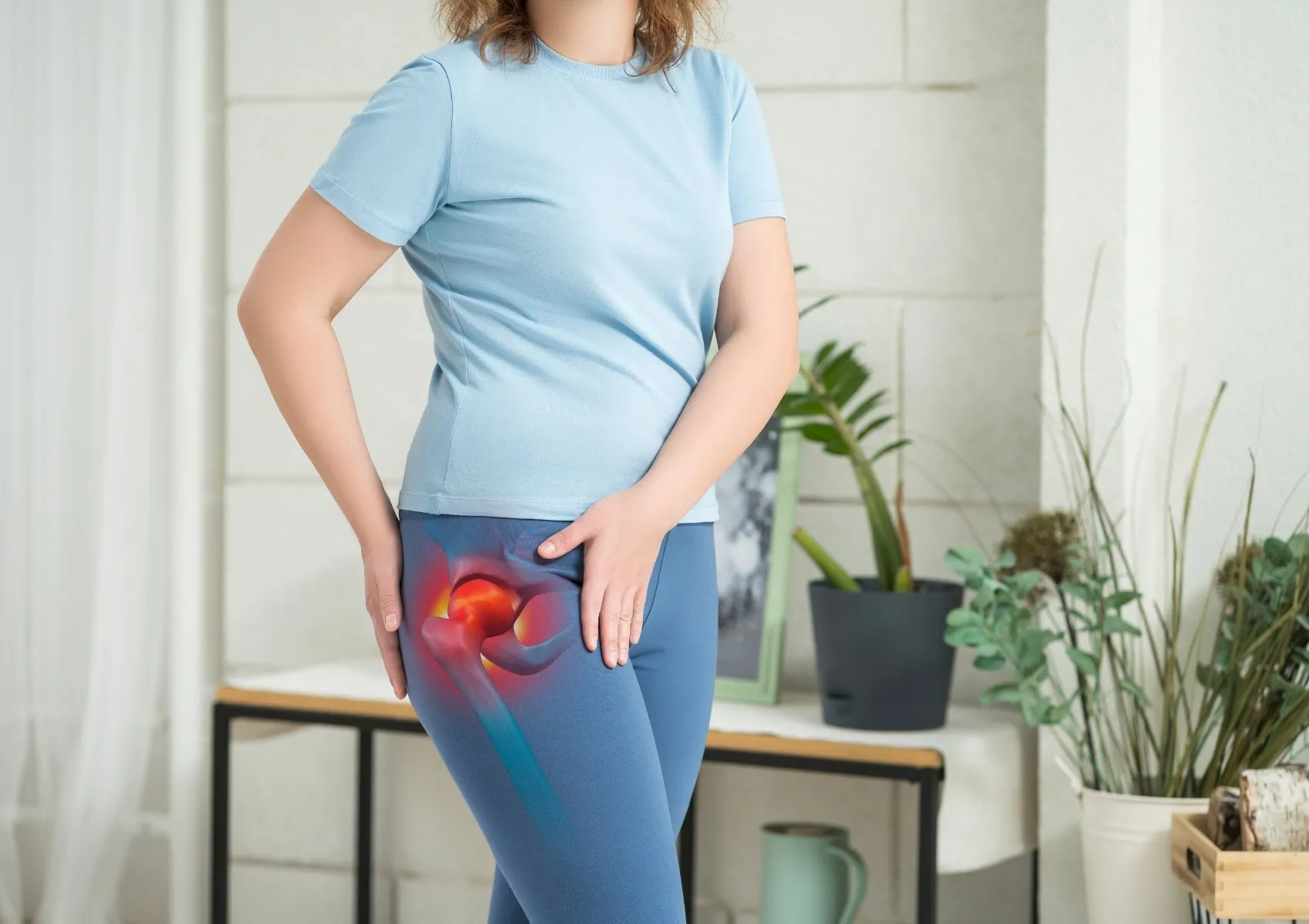What Causes Hip Pain? Symptoms and Treatment Methods
Hip pain is a common orthopedic problem that affects individuals of all ages and significantly impacts daily life.
What Causes Hip Pain? Symptoms and Treatment Methods
Hip pain is a common orthopedic problem that affects individuals of all ages and significantly impacts daily life. It can cause limited mobility, reduced quality of life, and, if left untreated, permanent joint damage. Pain in the hip area may stem from various musculoskeletal disorders and should not be ignored.
In this article, we’ll explore the causes, symptoms, diagnostic methods, and modern treatment approaches for hip pain in detail.
Common Causes of Hip Pain
1. Femoroacetabular Impingement (FAI)
Occurs when there’s abnormal contact between the femoral head and the acetabulum. It’s especially common in young, active individuals.
2. Labral Tears
Involves a tear in the cartilage structure (labrum) that surrounds the hip joint. Often coexists with FAI and is frequently seen in athletes and dancers.
3. Osteoarthritis
One of the most common causes of hip pain in older adults. It involves degeneration of the cartilage, resulting in stiffness, pain, and reduced mobility.
4. Hip Bursitis
Causes lateral hip pain, especially around the trochanteric region. It’s an inflammatory condition that worsens with walking or climbing stairs.
5. Acetabular Dysplasia
A developmental condition where the acetabulum does not cover the femoral head sufficiently, leading to early damage to the labrum and cartilage.
6. Gluteal Tendon Tears and Tendinitis
Injuries or inflammation in the gluteus medius or minimus muscles can lead to outer hip pain.
7. Iliopsoas Tendinitis
Characterized by anterior hip pain, especially during transitions from sitting to standing. Common in dancers and football players.
8. Osteitis Pubis and Athletic Pubalgia
Inflammatory conditions affecting the lower abdomen and groin, often seen in soccer players and athletes with repetitive stress injuries.
9. Piriformis Syndrome
A neuromuscular condition where the piriformis muscle compresses the sciatic nerve, causing radiating pain from the hip down to the leg.
10. Hip Joint Infections or Fractures
Can present with acute pain, swelling, limited mobility, and fever—often requiring urgent medical intervention.
Symptoms of Hip Pain
- Deep or superficial hip joint pain
- Burning or stabbing pain during walking or running
- Difficulty with sitting, standing, or squatting
- Pain radiating to the thigh, knee, or lower back
- Increased discomfort when climbing stairs
- Clicking or popping sensations during movement
- Morning stiffness or reduced range of motion
- Limping or changes in walking pattern
Diagnostic Methods
A thorough clinical history and physical examination are essential to identify the root cause of hip pain. When necessary, the following imaging techniques may be used:
- X-ray: Useful for detecting structural bone abnormalities.
- MRI (Magnetic Resonance Imaging): Best for evaluating labral tears, cartilage damage, and soft tissues.
- Ultrasound: Useful for diagnosing bursitis or superficial soft tissue issues.
- CT (Computed Tomography): Preferred for detailed bone structure assessment.
- Diagnostic Injections: Help identify the exact pain origin by applying local anesthetics into the joint.
Treatment Options for Hip Pain
1. Conservative (Non-Surgical) Approaches
- Rest and activity modification
- Pain relief and anti-inflammatory medications
- Physical therapy and personalized exercise programs
- Biological treatments such as PRP and stem cell therapy
- Local injections for inflammation and pain control
2. Surgical Approaches
- Hip Arthroscopy: Minimally invasive surgery for labral tears, FAI, and cartilage issues
- Open Surgery: Required in cases of complex deformities or advanced arthritis
- Hip Replacement (Total Hip Arthroplasty): Recommended for irreversible joint damage due to osteoarthritis
FAQ
-
Can hip pain affect walking?
Yes. Hip joint problems often lead to changes in gait and reduced mobility.
-
Can hip pain cause knee pain?
Yes. Hip-related pain can radiate down to the front of the knee, often leading to misdiagnosis.
-
Should I apply heat or cold for hip pain?
Cold therapy is preferred in acute injuries, while heat is more effective for chronic conditions.
-
Does hip pain prevent exercise?
It depends on the cause. During painful episodes, it is advisable to reduce or modify physical activity.
-
Is PRP therapy effective for hip pain?
Yes. PRP has shown promising results in labral tears, early cartilage degeneration, and tendon-related hip pain.

